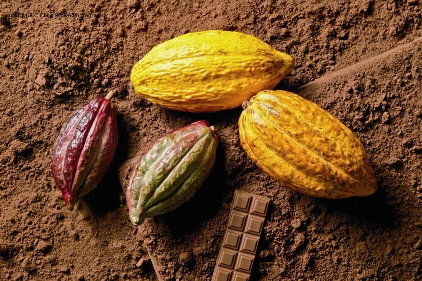More good news for those looking to justify eating chocolate — a new study shows cocoa may help fight obesity-related inflammation diseases, such as diabetes.

|
| Photo provided by ADM. |
Researchers at Penn State fed mice a high-fat diet. Then, some of the mice were given a cocoa supplement, while others weren’t. After a 10-week period, the mice that ate the human equivalent of 10 tablespoons of cocoa powder had less obesity-related inflammation than the mice who didn’t, according to a report released in the online version of the European Journal of Nutrition.
"What surprised me was the magnitude of the effect," says Joshua Lambert, associate professor of food science.
Cocoa powder, although commonly consumed in chocolate, actually is low in calories and fat while rich in fiber.
"Most obesity researchers tend to steer clear of chocolate because it is high in fat, high in sugar and is usually considered an indulgence," Lambert explains. "However, cocoa powder is low in fat and low in sugar.”
Cocoa powder is also similar to green tea and wine because it contains a lot of polyphenolic compounds, which have been shown to offer health benefits.
The mice also saw a slight but significant drop in the rate of body weight gain, according to the researchers.
Two theories on inflammation and obesity may help explain cocoa powder's role in mitigating inflammation.
One theory is that excess fat may activate a distress signal that causes immune cells to become activated and cause inflammation. The cocoa powder may reduce the precursors that act as a distress signal to initiate this inflammatory response.
The other theory is that excess fat in the diet interferes with the body's ability to keep a bacterial component called endotoxin from entering the bloodstream through gaps between cells in the digestive system — gut barrier function — and alerting an immune response. The cocoa powder in this case may help improve gut barrier function.
Lambert — who worked with Yeyi Gu, a graduate student in food science, and Shan Yu, a graduate student in physiology — expects future research will be conducted to better identify why the cocoa powder is effective in treating inflammation, as well as to determine if the treatment is suitable for humans.
The National Institute of Health supported this work.




